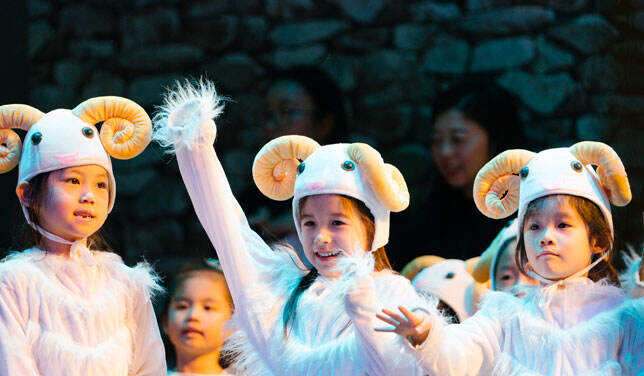Considering the motion | Debating encourages critical thinking
2018-04-25
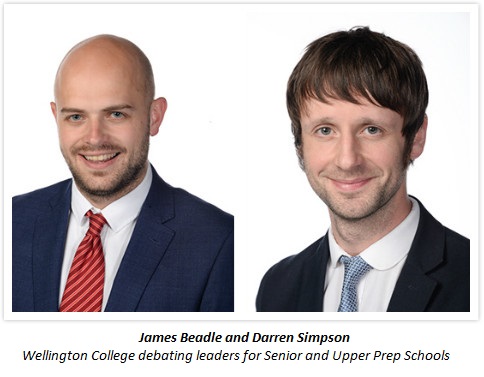 An in-depth look at the importance of debating, highlighting its impact on pupils in terms of improving their confidence, independence and their ability to think in a critical manner.
Considering the unexplored
An in-depth look at the importance of debating, highlighting its impact on pupils in terms of improving their confidence, independence and their ability to think in a critical manner.
Considering the unexplored
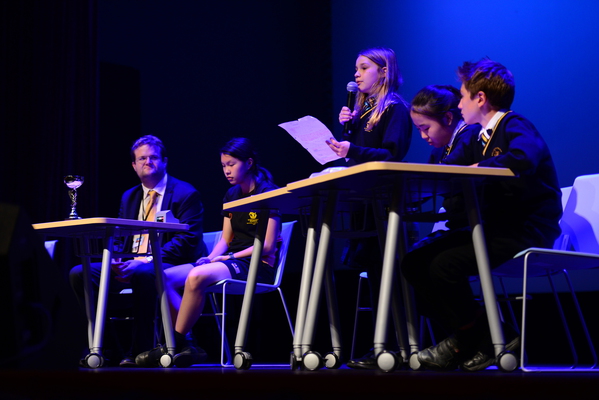 Primarily, debating is important for pupils because it gives them a chance to think critically about things that they wouldn’t necessarily get to discuss in lessons. Whatever is being debated, whether it’s the situation in North Korea or if school classes should be set according to ability, debating allows pupils to discuss and explore subjects at a very mature level and, equally importantly, they aren’t told whether they’re right or wrong. Frequently, pupils propose the motions themselves, which has led to some of our most interesting and closely-fought debates as pupils are able to dive into topics that truly excite or interest them.
Debating gives pupils the opportunity to follow their own ideas; to consider them, present them, express them and have them judged for their own value. Whether the debate focuses on current affairs, elements of their own educations, moral or philosophical questions, it’s a very open and engaging forum that encourages free-flowing critical thinking.
Considering the information
Primarily, debating is important for pupils because it gives them a chance to think critically about things that they wouldn’t necessarily get to discuss in lessons. Whatever is being debated, whether it’s the situation in North Korea or if school classes should be set according to ability, debating allows pupils to discuss and explore subjects at a very mature level and, equally importantly, they aren’t told whether they’re right or wrong. Frequently, pupils propose the motions themselves, which has led to some of our most interesting and closely-fought debates as pupils are able to dive into topics that truly excite or interest them.
Debating gives pupils the opportunity to follow their own ideas; to consider them, present them, express them and have them judged for their own value. Whether the debate focuses on current affairs, elements of their own educations, moral or philosophical questions, it’s a very open and engaging forum that encourages free-flowing critical thinking.
Considering the information
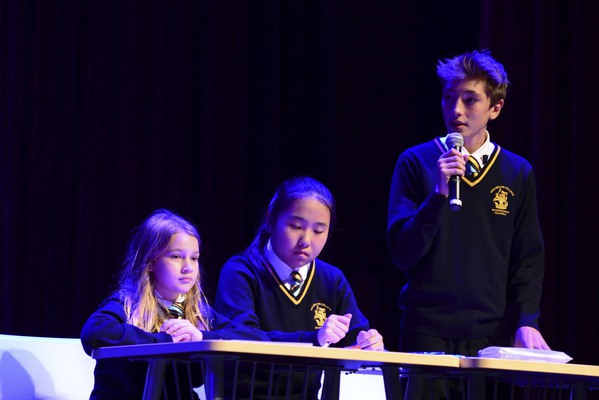 Debating is also about critical engagement, particularly engagement with information. Our pupils are living in an age of unprecedented access to information, which brings invaluable learning opportunities but plenty of pitfalls too. Debating is extremely helpful in teaching pupils to engage with sources of information critically: testing them to detect bias, spin and even outright falsehoods.
This process of critical engagement with information helps them create a reasonable, balanced view of the subject they’re exploring, while also strengthening the argument that they bring to the debate. If facts are not checked or a source seems wildly inaccurate or unbelievable, that’s a weakness in the argument for the opposing team to challenge and exploit. Ultimately, debating encourages pupils to look at a range of information sources covering the same subject matter and identify for themselves what they believe is trustworthy versus what isn’t.
Considering your point of view
Debating is also about critical engagement, particularly engagement with information. Our pupils are living in an age of unprecedented access to information, which brings invaluable learning opportunities but plenty of pitfalls too. Debating is extremely helpful in teaching pupils to engage with sources of information critically: testing them to detect bias, spin and even outright falsehoods.
This process of critical engagement with information helps them create a reasonable, balanced view of the subject they’re exploring, while also strengthening the argument that they bring to the debate. If facts are not checked or a source seems wildly inaccurate or unbelievable, that’s a weakness in the argument for the opposing team to challenge and exploit. Ultimately, debating encourages pupils to look at a range of information sources covering the same subject matter and identify for themselves what they believe is trustworthy versus what isn’t.
Considering your point of view
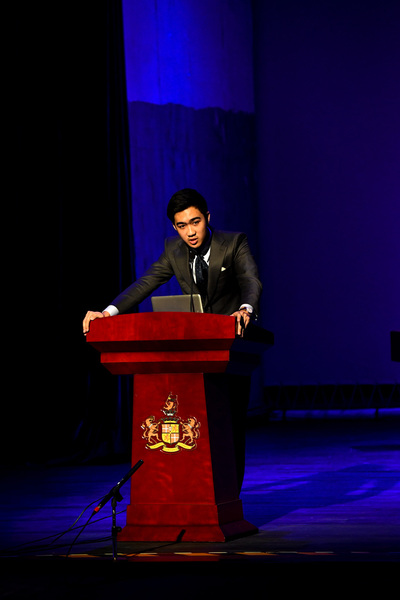 When preparing for a debate, pupils are often forced to look at topics from a completely different perspective. By arguing a position contrary to their own beliefs, pupils are encouraged to carefully examine the reasons for holding such beliefs. Just as importantly, to present the best argument, they must engage with the perspectives of others and find the reasoning behind those perspectives.
By arguing from unfamiliar perspectives, pupils are encouraged, even forced, to deconstruct pre-formulated opinions about the topics we debate. This is important because critical thinking requires an open and unbiased mentality, capable of taking on new ideas and information and judging them for their inherent worth.
Considering the opposition
When preparing for a debate, pupils are often forced to look at topics from a completely different perspective. By arguing a position contrary to their own beliefs, pupils are encouraged to carefully examine the reasons for holding such beliefs. Just as importantly, to present the best argument, they must engage with the perspectives of others and find the reasoning behind those perspectives.
By arguing from unfamiliar perspectives, pupils are encouraged, even forced, to deconstruct pre-formulated opinions about the topics we debate. This is important because critical thinking requires an open and unbiased mentality, capable of taking on new ideas and information and judging them for their inherent worth.
Considering the opposition
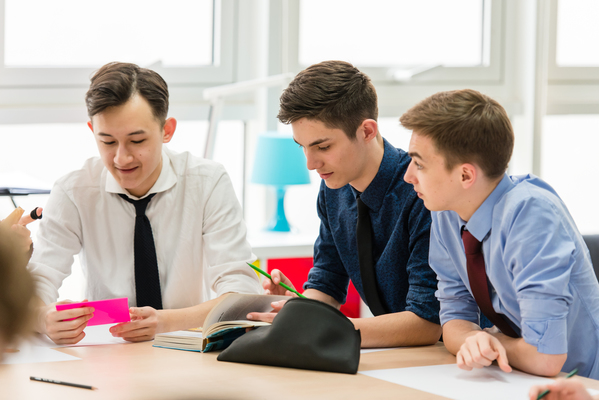 Debating is a formalised environment with set rules and, admittedly, pupils sometimes take a little bit of time to get used to the mechanics of it. Not speaking out of turn, not laughing or making dismissive actions when points and rebuttals are being delivered, listening respectfully and patiently waiting for your turn to respond, these are all essential elements of debating. They also reinforce values we try to instil at Wellington – primarily respect and integrity, of course it also takes great courage to argue your case to an audience of your peers and teachers.
Being respectful and considerate of other views is both an important life skill and genuinely helpful approach to debating. A key skill that all the best debaters have – and one which is not intrinsically obvious – is the ability to listen. Debating is not just about coming up with the best argument, it’s also about engaging with your opponent, probing their argument before picking it apart. To achieve this, you must be able to listen so that you have a clear understanding of what their argument is. This means that pupils are taking a step back and seriously considering the value of the beliefs and constructed arguments of others, something which ultimately helps them develop a more understanding, empathetic sense of character.
Considering the future
Debating is a formalised environment with set rules and, admittedly, pupils sometimes take a little bit of time to get used to the mechanics of it. Not speaking out of turn, not laughing or making dismissive actions when points and rebuttals are being delivered, listening respectfully and patiently waiting for your turn to respond, these are all essential elements of debating. They also reinforce values we try to instil at Wellington – primarily respect and integrity, of course it also takes great courage to argue your case to an audience of your peers and teachers.
Being respectful and considerate of other views is both an important life skill and genuinely helpful approach to debating. A key skill that all the best debaters have – and one which is not intrinsically obvious – is the ability to listen. Debating is not just about coming up with the best argument, it’s also about engaging with your opponent, probing their argument before picking it apart. To achieve this, you must be able to listen so that you have a clear understanding of what their argument is. This means that pupils are taking a step back and seriously considering the value of the beliefs and constructed arguments of others, something which ultimately helps them develop a more understanding, empathetic sense of character.
Considering the future
 As well as honing the different skills and encouraging the positive personality traits already discussed, debating is also an excellent testing ground for many of the tough challenges pupils are likely to face in later life. It is the best form of preparation for interviews: whether for jobs or higher education opportunities, there is no better way to learn how to think on your feet and respond intelligently and assertively to whatever is being thrown at you.
When preparing for a debate, pupils can (and should) try to anticipate what the questions and key points of discussion will be, but it’s very likely that something will catch them off guard, causing them to need to quickly form a viable response. It’s an incredibly valuable lesson for pupils to learn that preparing yourself is undoubtedly important, it will help in almost any situation you encounter, but it’s also a skill to be able to react to what’s put in front of you. If you can formulate intelligent, confident and considered responses to questions under pressure during a debate, you’ll be in a great position to tackle university and job interviews further down the line.
Considering Wellington’s debating success
As well as honing the different skills and encouraging the positive personality traits already discussed, debating is also an excellent testing ground for many of the tough challenges pupils are likely to face in later life. It is the best form of preparation for interviews: whether for jobs or higher education opportunities, there is no better way to learn how to think on your feet and respond intelligently and assertively to whatever is being thrown at you.
When preparing for a debate, pupils can (and should) try to anticipate what the questions and key points of discussion will be, but it’s very likely that something will catch them off guard, causing them to need to quickly form a viable response. It’s an incredibly valuable lesson for pupils to learn that preparing yourself is undoubtedly important, it will help in almost any situation you encounter, but it’s also a skill to be able to react to what’s put in front of you. If you can formulate intelligent, confident and considered responses to questions under pressure during a debate, you’ll be in a great position to tackle university and job interviews further down the line.
Considering Wellington’s debating success
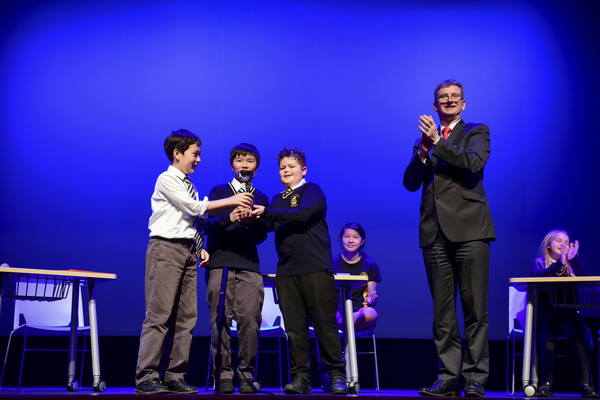 Debating has steadily grown at Wellington since its foundation, now encompassing dedicated upper Prep and Senior School CCAs, annual house debating events and a rising tally of national and international debating competition success stories.
Any pupils reading this who think that they have the heart and mind of a skilled orator should look out for the next opportunity to join in with the debating CCAs or house competitions. Very quickly, you could be joining our top debaters in one of the many national and international events where Wellington has enjoyed significant success.
A version of this article was originally published in Urban Family magazine.
More relevant articles :
Debating has steadily grown at Wellington since its foundation, now encompassing dedicated upper Prep and Senior School CCAs, annual house debating events and a rising tally of national and international debating competition success stories.
Any pupils reading this who think that they have the heart and mind of a skilled orator should look out for the next opportunity to join in with the debating CCAs or house competitions. Very quickly, you could be joining our top debaters in one of the many national and international events where Wellington has enjoyed significant success.
A version of this article was originally published in Urban Family magazine.
More relevant articles :
相关资讯

不要错过上海惠灵顿第二届舞蹈表演"Connecting eMotions."2025-04-17
诚邀您参加 5 月 8 日的 “Connecting eMotions”--我校的第二届舞蹈表演! 我们将隆重推出 “Connecting eMotions”,这是来自舞蹈资优学生项目和舞蹈辅助课程教学活动的学子们联袂献上的第二场表演。 今年的主题是颂扬连结的力量--既有情感上的,也有合作上的。我们的舞者通过团队协作共同创造出充满活力的作品,不仅视觉效果震撼,而且内涵丰富。在此过程中,他们培养了
点击阅读

What is iGEM and our project, Barnacure?2025-10-09
iGEM Competition & Barnacure Team Members Team Illustration by Joanna, Year 11Article written Jing Jing, Year 11Primary Principal Investigator: Thomas Edwards, Head of Biology & Head of Science What
点击阅读

邀您见证“舞”所不能!2025 eMotion 舞蹈汇演2025-11-03
灯光已就位——我们的舞者亦准备就绪。 诚邀您莅临 eMotion 舞蹈汇演,共同见证惠灵顿学子如何通过表演艺术,探索自我、建立自信、以创意表达彼此联结,展现“笃学、互通、善新”的惠灵顿教育愿景。 本次汇演将于11月12日下午5:00举行,汇聚舞蹈资优生与Have2Dance舞蹈大赛优胜者的原创编舞与精彩表演。每一支作品都彰显着年轻舞者的独特个性、专业素养与艺术表现力。 过往舞蹈汇演精彩瞬间 在惠
点击阅读








